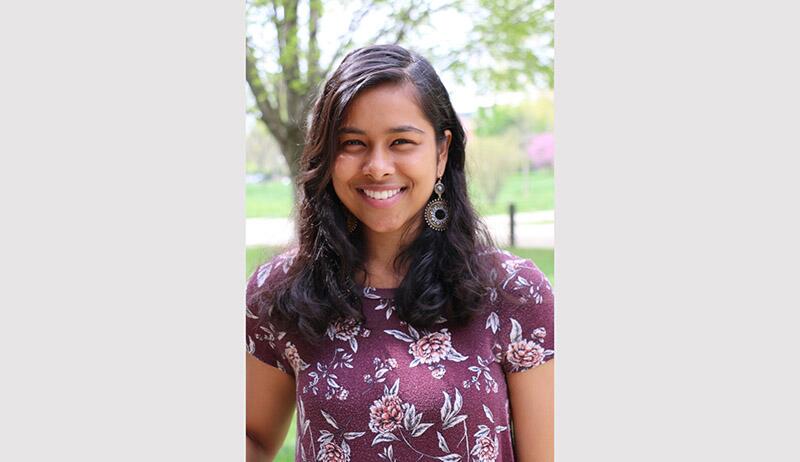ACES Fulbright scholar tackles emerging infectious diseases in India

Growing up in Silicon Valley, Krti Tallam was steeped in a culture that equated success with personal wealth and getting ahead. But that didn’t sit right with her.
“As grateful as I was to grow up there, I was bombarded by a sense that you need to be in tech to be successful,” she says. “It bothered me that we have 7 billion people in the world and we’re teaching them to look out for themselves, not do anything for the planet.”
Tallam intends to pick up their slack. The recent University of Illinois graduate will depart in August on a Fulbright scholarship to Andhra Pradesh, India, where she will study the effects of climate change on zoonotic disease transmission, that is, on diseases transmitted between animals and humans.
“Emerging infectious disease research is itself an emerging field, but some reports are showing that zoonotic diseases are starting to increase as biomes become more volatile. Rapidly changing climates, pollution, and other anthropogenic activities are influencing how much biomes can take,” Tallam says.
Her Fulbright research will investigate the complex factors that affect disease transmission to humans in the context of fisheries, coral reefs, and terrestrial ecosystems. She will analyze patterns in these systems using machine learning, an artificial intelligence tool that uses statistical methods, among other strategies, to “train” computer models on large datasets; in this case, the purpose is to help make some sense of ecological complexity and create predictive models to guide future research direction.
For the past two and a half years, Tallam has been working with a variety of researchers and computer scientists at UC Berkeley to develop a specific machine learning program, which she plans to utilize to study zoonotic disease ecology in India.
Tallam will pursue a Ph.D. at the University of Oxford after the scholarship, building on research she will initiate in India. She says there hasn’t been much research on disease ecology in developing countries, and hopes her work will inform future environmental policy decisions.
Although she has been an environmentalist all her life, Tallam credits her alma mater, and specifically the Department of Natural Resources and Environmental Sciences (NRES), with supporting her development as a young scientist.
“During my time in the department, there was not a single opportunity that I was held back from and that’s a very good feeling, especially as a woman of color in science,” she says. “I appreciated being seen as a budding scientist. I think being taken seriously by faculty was a key factor in my growth.”
Jeff Brawn, department head for NRES, says, “Having the opportunity to talk with Krti about her career goals and research interests was a real pleasure. Krti’s enthusiasm, curiosity, and dedication are amazing.”
Additional experiences in the College of Agricultural, Consumer and Environmental Sciences expanded Tallam’s horizons, including a winter study-abroad wildlife conservation program in Tanzania during her junior year. She also traveled to India multiple times as part of an Asian elephant conservation project, supported in part by a Udall Undergraduate Scholarship.
Tallam encourages other students to take advantage of similar opportunities at Illinois.
“Programs like these provide students the opportunity to go beyond their realm of comfort. That’s when you start to learn and grow and challenge yourself to be better, not only for yourself and your own career, but also for other people and the planet,” she says. “I can’t imagine what I’m going to learn during my Fulbright, but I know I’m going to be a different person by the time I get back.”
Follow Tallam by visiting her website and subscribing to her podcast, The Anthropositive Outlook.